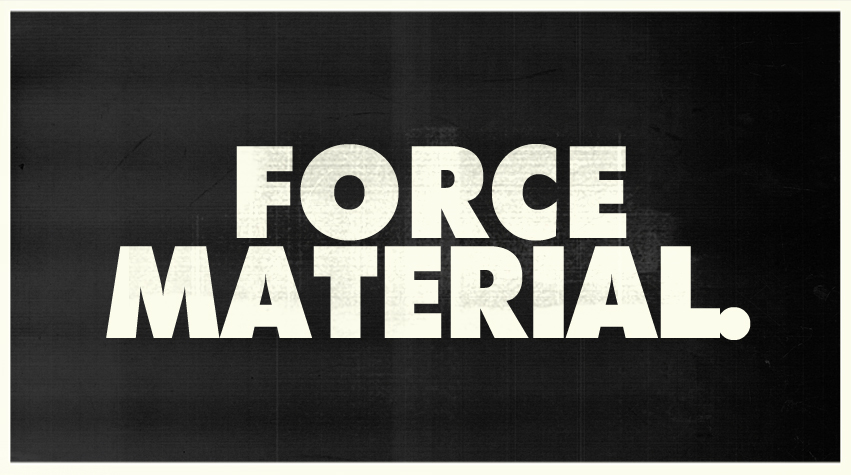The inspiration behind George Lucas' anti-Trump ad
Even George Lucas' political ads are homages.
George Lucas’ genius has always been his ability to synthesise old ideas and influences and turn them into something wholly his own.
It’s a talent he applied to his latest, relatively low-profile venture — coming up with the idea for an anti-Trump political ad that ran in the key battleground state of Ohio for one week in the lead-up to the November 8 election.
You’d think George Lucas dipping his toe into this year's cesspool of an election would have made waves, but aside from passing mentions in a handful of articles that were mostly focused on his friend Bill Bradley, his involvement seemed to go largely unnoticed.
The ad was produced and paid for by former Democratic Senator Bill Bradley’s super-PAC (Political Action Committee), but Bradley told With All Due Respect co-host Mark Halperin that Lucas “proposed the idea”, and served as a consultant.
This would put Bradley at odds with Hollywood, where — as The AV Club’s Mike Vanderbilt put it recently — “the hot new Hollywood trend appears to be not asking Geoge Lucas for any help”.
The ad, called Careful, opens with an animated nuclear explosion (not quite up to Lucas’ usual standard, if we’re being honest), followed by a narrator declaring that one nuclear bomb can kill a million people.
Over the top of archival footage and photographs of a nuclear explosion, the narrator goes on to explain that number is more than all the men, women and children living in Columbus, Ohio.
Footage is then shown of MSNBC commentator Chris Matthews’ interview with Trump, in which Matthews says, “A guy running for president of the United States talking of maybe using nuclear weapons… Nobody wants to hear that from an American president.”
Trump’s response: “Then why are we making them? Why do we make them?”
The words “Why do we make them?” echo, eventually culminating in another animated explosion, and the text-only tagline: “Be careful who you vote for.”
The ad is inspired by the Lyndon Johnson campaign’s ad, Daisy, from 1964.
Johnson’s ad was directed at his opponent in the Presidential race, Barry Goldwater. Unlike Bradley’s ad, Goldwater wasn’t shown or directly mentioned in Daisy.
Daisy opens with a little girl picking the petals off a daisy. Adorably, she repeats some numbers, and counts some in the wrong order. When she gets to nine, she pauses, as though she’s trying to think of the next number — and then a missile launch countdown starts.
The little girl looks towards a point off screen, and the frame freezes. We zoom in on the girl’s eye until her pupil fills the entire screen, blacking it out for a brief moment just as the countdown reaches zero, followed by a thunderous sound and a blinding flash of light.
Footage of three separate nuclear explosions is then played, over which Johnson narrates: “These are the stakes. To make a world in which all of God’s children can live, or to go into the dark. We must either love each other, or we must die.”
Then, the tag, white letters against a black backdrop, while narrator Chris Schenkel reads the words aloud: “Vote for President Johnson on November 3.” Finally, Schenkel adds: “The stakes are too high for you to stay home.”
Goldwater was seen as a hawk in favour of using nuclear weapons, so while he isn’t mentioned directly, audiences could have had no doubt about the ad’s meaning and intended target. It only ran once, but the point was made, and Johnson won in a landslide.
Daisy is, frankly, much more disturbing (and artful) than the Bradley/Lucas joint, although the influence is clear — both in its use of the spectre of a nuclear explosion to scare voters away from a political rival, and, in a more subtle touch pointed out by Bloomberg, the name of Bradley’s super-PAC, the 52nd Street Fund.
The 52nd Street Fund is a reference to September 1, 1939, a poem by W.H. Auden that opens with the lines “I sit in one of the dives / On Fifty-second Street”. Auden’s poem also includes the line “We must love one another or die”, which was closely echoed by Lyndon Johnson’s words in Daisy — “We must either love each other, or we must die”.
(Hilary Clinton also turned to the Daisy well during the campaign, recruiting former child actor Monique Corzilius Luiz — the little girl in Daisy — for an ad spotlighting Trump’s willingness to use nuclear weapons.)
Lucas and Bradley may not have been able to replicate the success of Daisy, and they weren’t able to defeat Trump.
But if the politics of the Star Wars saga weren’t obvious enough, Careful should leave no doubt about what Lucas thinks of the President-elect.
Force Material is a podcast exploring the secrets and source material of Star Wars with hosts Rohan Williams and Baz McAlister. Listen and subscribe on iTunes, Spotify, iHeartRadio, TuneIn, Stitcher, PlayerFM and Castro; stay in touch with us on Facebook, Twitter and Instagram; and support the show by browsing our range of shirts, hoodies, kids apparel, mugs and more at TeePublic.






